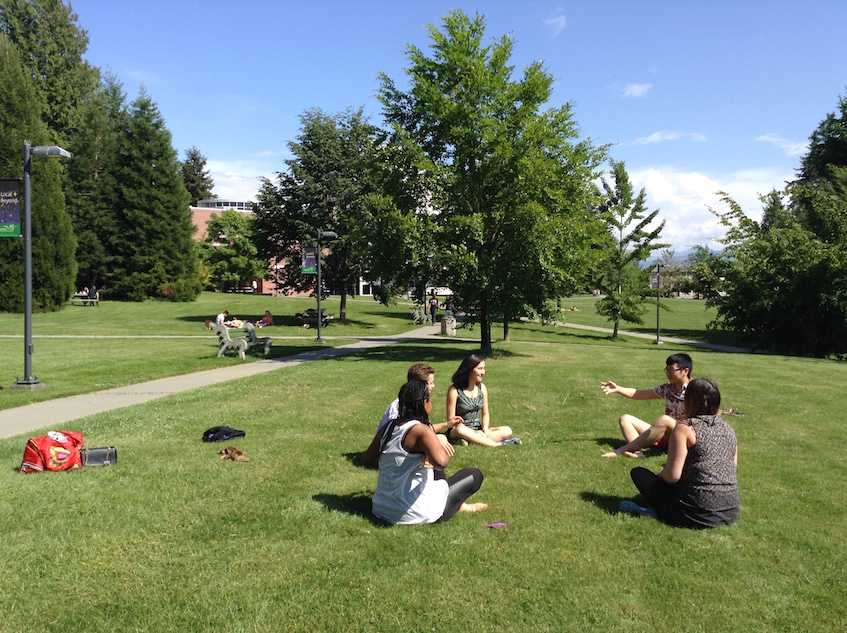Print Edition: May 20, 2015

Every Tuesday afternoon in the UFV Global Lounge, students are invited to participate in an open dialogue on topics varying from gender roles and sexuality to racial privilege and cultural segregation.
Intercultural Inquiry is a safe space for students to gather and challenge themselves to analyze their perspectives on issues crucial to how students from cultures around the world work and learn together on- and off-campus. The event is organized by global engagement co-ordinator Chelsey Laird and hosted by Sherlock Chen, the global student associate at the International Lounge. The two moderate and encourage an intimate group of students to open up about their cultural backgrounds and explore the ways of life students from each ethnicity grow up in.
Students are especially inclined to engage in debate and conversation about their opinions and questions about the minefield that is today’s society. Though not every student sits with a pint of beer (or three) every Friday evening and shares their standpoint on sexual identity or white privilege, each has their own view on social issues. What is especially important about Intercultural Inquiry is that students can be free to express those views, but have the opportunity to be challenged by those who may be from another country and see the issue in an entirely different light.
At the first meeting, over 20 students gathered over cookies and ice cream to try to answer the question, “What is diversity?” Participants ranged from students in their first days of university to last semester’s graduates, and were spread across an array of cultures and ethnicities. Answers to the question were fittingly diverse; some viewed diversity from an ethnic standpoint, while others felt it had more to do with religion or sexuality.
Firmly agreed upon by the group in their first meeting was the point that as humans, we all make certain conclusions about others from the second we meet them. Cultural stereotypes play a huge role in this, influencing assumptions made from the start and affecting the new relationship before it begins.
The second meeting yesterday took a lighter approach to culture. A more intimate group of around eight students gathered to talk about childhood games and the effect these games have on us while growing up. The group talked about games like Kick the Can, Red Rover, Cops and Robbers, and the less culturally sensitive Cowboys and Indians. “When we’re young … you actually limit that kind of culture to good or bad,” Chen says. “But when you grow up, you actually realize that multiculturalism and diversity is a good thing.”
What Intercultural Inquiry aims to do is to foster discussion between cultures and people who may not necessarily take the time to investigate one another’s worldviews, and bridge the gap to create a more engaged campus culture at UFV. At their second meeting, the group went outside to play childhood games on the Green.
“This is so enlightening,” one student said as the group stood up after the discussion.
On the Green, the group kicked off their shoes and ran around playing versions of Duck, Duck, Goose. Passersby looked up from their phones and grinned at the group — who were taking breaks from running so they could laugh.
Laird mentioned this, saying that using the space outside helps students to learn and encourage others to learn.
“There are different learning opportunities that occur both in classrooms and out of them,” she says.
At the end of the hour, the most common comment had nothing to do with culture, but was rather a collection of memories and nostalgia for childhood days — where all you worried about was winning the game.
The significant decrease in turnout didn’t stop the group from having fun; however, Chen will continue to encourage participation.
“If we got more people this would be wonderful,” he says.
Intercultural Inquiry will be hosted from 3 to 4 p.m. every Tuesday until the end of July in the UFV Global Lounge. Upcoming topics will include discussions on travel and homogenous cultures, as well as power and privilege in Western society.
With files from Megan Lambert.


